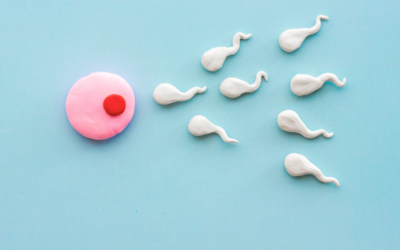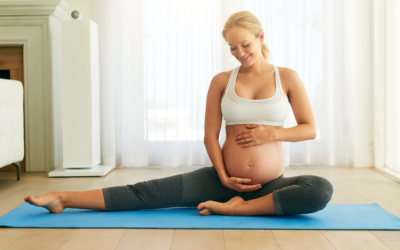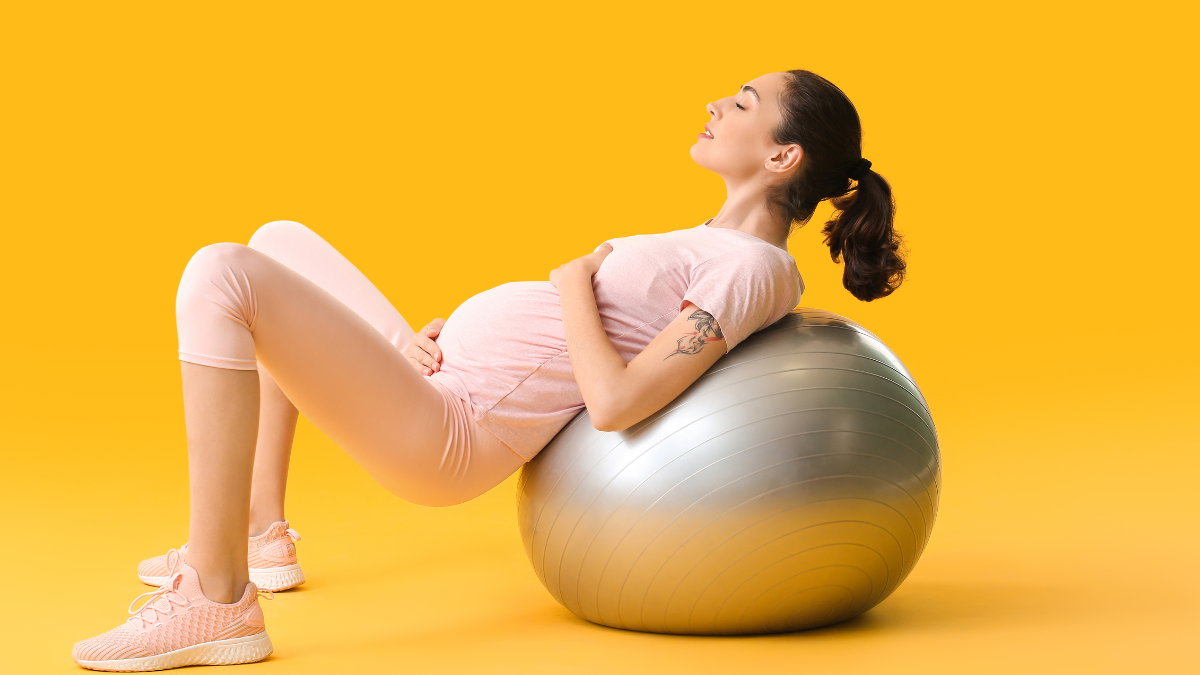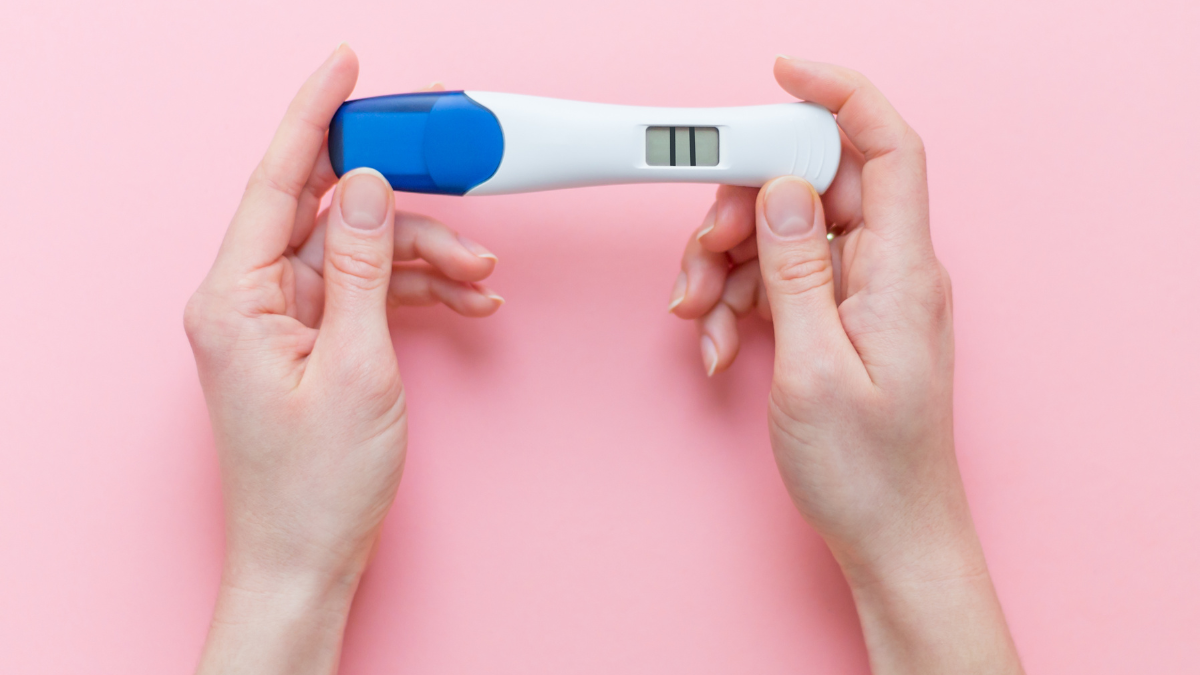Welcome to the very start of one of life’s most beautiful journeys—pregnancy. If you’re wondering what happens at 2 weeks pregnant, you’re not alone. This early phase can feel a bit confusing, especially since you may not even know you’re pregnant yet! But understanding this critical stage is essential for expecting moms and families alike.
At 2 weeks pregnant, your body is preparing for ovulation, making this the perfect time for conception. In this post, we’ll guide you through what’s happening in your body, why it matters, and what to expect during this week. You’ll also find tips for boosting fertility, common myths debunked, and answers to some of the most frequently asked questions about early pregnancy. Whether you’re actively trying to conceive or simply curious about the process, this guide offers everything you need to feel informed and empowered.
Table of Contents
What Does 2 Weeks Pregnant Really Mean?
Being “2 weeks pregnant” might sound like you’re already expecting, but here’s the twist: most doctors calculate pregnancy from the first day of your last menstrual period (LMP), not from the day of conception. This means that during week 2, you’re likely not pregnant yet. Instead, your body is gearing up to ovulate, which typically happens around day 14 of a 28-day cycle.
During this week, hormones like estrogen and luteinizing hormone (LH) rise, stimulating your ovaries to release a mature egg. This egg travels through the fallopian tube, waiting to meet sperm. If fertilization occurs, conception happens, and your pregnancy officially begins around week 3. So even though you’re not technically at 2 weeks pregnant, it’s a pivotal time to understand what’s happening internally.

When Does Ovulation Happen and Why Does It Matter
Ovulation generally occurs between days 12–16 of a regular cycle, with day 14 being the average. This is your most fertile window and the prime opportunity to conceive. Several factors can influence this timing, including stress, illness, and irregular periods.
Knowing when you ovulate is crucial if you’re trying to get pregnant. You can track ovulation by monitoring your basal body temperature, watching for changes in cervical mucus, or using ovulation predictor kits (OPKs). These tools help pinpoint your fertile window and increase your chances of conception. If you’re 2 weeks pregnant by calendar terms, it’s time to start watching for these signs.
Why Knowing About 2 Weeks Pregnant Is Important
Understanding what’s happening at 2 weeks pregnant can give you a major head start on a healthy pregnancy. This is the stage where your choices—what you eat, how you rest, and how you manage stress—can impact your fertility and eventual pregnancy outcome.
Being aware also allows you to prepare mentally and emotionally. Many women find that learning more about ovulation, timing, and their bodies empowers them to take control of their reproductive health. Plus, it gives families a better sense of what to expect in the coming weeks. Whether you’re tracking for the first time or have been trying for a while,2 weeks pregnant is full of potential.
How It Affects You and Your Baby (Even Before Conception)
At 2 weeks pregnant, there’s no embryo yet, but your body is setting the stage for it. Your uterine lining is thickening, making it a cozy place for a fertilized egg to implant. Meanwhile, healthy sperm can survive in the reproductive tract for up to five days, increasing your chances of getting pregnant if you have intercourse during your fertile window.
For you, this week may come with subtle signs like increased libido, mild cramping, or changes in cervical mucus. Emotionally, you might feel hopeful, anxious, or a mix of both. Although the baby hasn’t formed yet, these early biological processes play a big role in your future pregnancy.
What to Expect at 2 Weeks Pregnant: Tips and Care
Here’s how you can support your body during 2 weeks of pregnant:
- Track ovulation: Use OPKs or fertility apps to monitor your fertile days.
- Eat nutrient-rich foods: Focus on folate, iron, and omega-3s to prepare your body.
- Stay active: Gentle exercise supports blood flow and hormone regulation.
- Limit caffeine and avoid alcohol: These habits can impact ovulation and early development.
- Take prenatal vitamins: Folic acid is key to reducing neural tube defects, even before conception.
- Manage stress: Mindfulness, journaling, and light yoga can help maintain hormonal balance.
- Get enough rest: Sleep supports hormonal rhythms essential for fertility.
Remember, if you’re unsure when you ovulate or have concerns about your cycle, speak with your healthcare provider for personalized advice for 2 weeks pregnant.
2 Weeks Pregnant: 8 Common Pregnancy Symptoms
At 2 weeks pregnant, you’re technically not pregnant yet—but your body is preparing for ovulation, the key event that allows pregnancy to happen. Since fertilization hasn’t occurred, the symptoms you may experience during week 2 are related to your menstrual cycle and upcoming ovulation rather than pregnancy itself. Here are the most common signs your body is getting ready for conception:
- Increased Cervical Mucus
You may notice a clear, stretchy, egg white-like discharge. This fertile cervical mucus helps sperm travel through the cervix more easily. - Mild Pelvic or Abdominal Pain
Some women feel a slight twinge or cramp in the lower abdomen, known as mittelschmerz, during ovulation. - Heightened Sense of Smell
Hormonal shifts around ovulation can temporarily sharpen your sense of smell, although this is more noticeable in early pregnancy for some. - Breast Tenderness
Changes in estrogen and progesterone levels might make your breasts feel slightly sore, heavier, or more sensitive. - Increased Libido
Many women experience a natural rise in sexual desire during ovulation, which is their body’s way of encouraging conception. - Changes in Basal Body Temperature (BBT)
If you’re tracking BBT, you might notice a slight increase after ovulation. A sustained rise can indicate that ovulation has occurred. - Bloating or Water Retention
Hormones during ovulation can cause bloating or a feeling of fullness, similar to PMS. - Mood Swings or Irritability
Hormonal fluctuations can lead to temporary mood changes, even before pregnancy officially begins.
While you may not yet be 2 weeks pregnant, understanding these signs can help you better recognize your body’s fertility window and prepare for the journey ahead.
Baby Development at 2 Weeks Pregnant
At 2 weeks pregnant, your baby hasn’t been conceived yet, but exciting things are happening inside your body to prepare for that moment. This is the stage in your menstrual cycle when your ovaries are getting ready to release an egg (ovulation), and your body is creating the ideal environment for fertilization and implantation. While there isn’t a developing baby yet, this week is crucial to the process of new life beginning. Here’s what’s happening:
- Ovulation Is About to Occur
Around the middle of your cycle (typically day 14 in a 28-day cycle), one of your ovaries releases a mature egg into the fallopian tube. This egg can survive for about 12–24 hours, waiting for a sperm to fertilize it. - Hormones Are at Work
Estrogen levels rise, helping your uterine lining thicken and prepare to support a fertilized egg. After ovulation, progesterone increases to maintain that lining for possible implantation. - Cervical Mucus Becomes Fertile
Your cervical mucus becomes clear and stretchy—ideal for helping sperm reach the egg. This is a good sign you’re in your fertile window. - The Egg’s Journey Begins (Soon)
If sperm meets the egg during ovulation, fertilization may occur, and the resulting cell (called a zygote) will begin dividing and traveling to the uterus over the next several days. - Implantation Will Happen Next Week
If fertilization occurs this week, the baby’s earliest development will begin in week 3 when the tiny bundle of cells implants into your uterus and officially starts growing.
Even though you’re not technically pregnant yet at 2 weeks, this week is a vital part of the process that leads to pregnancy. Taking care of your health now increases the chances of a strong start for your baby’s future development at 2 weeks pregnant.

Tips for a Healthy and Safe Pregnancy at 2 Weeks Pregnant
Here are essential tips to support your health and increase your chances of a successful pregnancy during 2 weeks pregnancy:
- Start Prenatal Vitamins
Begin taking prenatal vitamins that include 400–800 mcg of folic acid to support early fetal development and prevent neural tube defects. - Eat a Balanced Diet
Focus on fertility-boosting foods like leafy greens, whole grains, lean proteins, and healthy fats to nourish your body and balance hormones. - Stay Hydrated
Drink at least 8 glasses of water daily to keep your reproductive system functioning properly and support overall wellness. - Reduce Stress
Practice relaxation techniques like meditation, deep breathing, journaling, or light yoga to help manage stress and regulate hormones. - Get Quality Sleep
Aim for 7–9 hours of restful sleep each night to promote hormonal balance and prepare your body for pregnancy. - Avoid Harmful Substances
Stay away from alcohol, tobacco, and recreational drugs. Limit caffeine intake to no more than 200 mg per day (about one small cup of coffee). - Track Your Cycle
Use ovulation predictor kits or fertility tracking apps to identify your fertile window and increase your chances of conception. - Maintain a Healthy Weight
Being underweight or overweight can affect fertility. Talk to your doctor about achieving or maintaining a healthy body weight. - Schedule a Preconception Checkup
Visit your healthcare provider to review medications, check for any health risks, and get personalized advice before pregnancy begins. - Stay Active
Engage in gentle exercises like walking or swimming to boost circulation, reduce stress, and support reproductive health.
These simple but powerful steps can help prepare your body and mind for pregnancy during this early and important stage for 2 2-week pregnant.
Healthy Diet Tips at 2 Weeks Pregnant
At 2 weeks pregnant, you’re likely in the ovulation phase of your menstrual cycle. While conception hasn’t occurred yet, your body is preparing for pregnancy, making your diet incredibly important. Eating the right foods now helps support fertility, balances hormones, and prepares your body for a healthy pregnancy. Here’s what to focus on in your 2 weeks pregnant diet:
- Folic Acid-Rich Foods
Include spinach, broccoli, lentils, and fortified cereals. Folic acid is essential for fetal neural tube development, which begins very early, often before you know you’re pregnant. - Lean Protein
Eggs, chicken, fish (low in mercury), tofu, and legumes provide protein to build hormones and support tissue growth and repair. - Whole Grains
Choose brown rice, oats, and quinoa for slow-releasing carbohydrates that stabilize blood sugar and supply energy for ovulation. - Healthy Fats
Avocados, nuts, seeds, and olive oil are rich in omega-3 and monounsaturated fats, which support hormone production and reduce inflammation. - Colorful Fruits and Vegetables
Fill your plate with a rainbow of produce like berries, carrots, sweet potatoes, and kale. These are packed with antioxidants, fiber, and key vitamins like vitamin C and A. - Dairy or Calcium-Rich Alternatives
Include yogurt, milk, or fortified plant-based options for calcium and vitamin D, which support bone health and hormonal balance. - Iron-Rich Foods
Red meat (in moderation), leafy greens, beans, and iron-fortified cereals help prevent early fatigue and prepare your body for increased blood production in pregnancy. - Plenty of Water
Staying hydrated helps nutrient absorption and supports egg health and cervical mucus production, both crucial for conception. - Limit Caffeine and Avoid Harmful Substances
Keep caffeine under 200 mg per day and completely avoid alcohol, smoking, and processed junk food to maintain a healthy hormonal environment. - Consider a Prenatal Vitamin
A supplement can help fill any nutritional gaps, especially folic acid, iron, and vitamin D, as your body gears up for a healthy pregnancy.
Eating well at this stage not only supports your chances of conception but also lays the groundwork for a vibrant and healthy pregnancy journey.

Safe and Healthy Exercises at 2 Weeks Pregnant
At 2 weeks pregnant, you may not be officially pregnant yet, but your body is preparing for ovulation and conception. This is a great time to adopt healthy movement habits that support fertility and prepare you for pregnancy. Staying active can improve blood circulation, balance hormones, reduce stress, and maintain a healthy weight—all of which contribute to a better chance of conceiving and a healthier pregnancy overall. Here are some safe and effective exercises for this early phase:
- Walking
A simple, low-impact way to boost circulation and support cardiovascular health. Try brisk walking for 30 minutes a day to improve mood and fertility. - Yoga
Gentle yoga poses help reduce stress, increase flexibility, and strengthen your pelvic region. Focus on calming styles like prenatal yoga, hatha, or restorative yoga. - Swimming
Swimming is a full-body workout that’s easy on the joints. It improves endurance, keeps you cool, and supports heart health. - Pilates
Pilates strengthens your core, improves posture, and enhances body awareness. It can also help prepare your muscles for the physical demands of pregnancy. - Strength Training
Light resistance training using body weight, resistance bands, or light dumbbells can improve strength and stamina. Focus on full-body movements and avoid heavy lifting. - Cycling on a Stationary Bike
A safe, joint-friendly cardio option that supports heart health without high impact. Keep resistance light and avoid overexertion. - Stretching
Daily stretching improves flexibility, prevents stiffness, and enhances relaxation. Stretch your hips, back, and shoulders to prepare for pregnancy-related changes. - Deep Breathing or Mindful Movement
Incorporate breathing techniques, tai chi, or mindful walking to help reduce stress and support emotional balance, which can be helpful for conception.
Before beginning or continuing any exercise routine, especially if you’re trying to conceive or have any medical conditions, it’s wise to consult with your doctor. Regular movement now not only boosts your fertility but also sets a strong foundation for a healthy and active pregnancy ahead.

Common Myths About Being 2 Weeks Pregnant
Myth 1: You’re already pregnant at 2 weeks.
Actually, this is the preparatory stage. Ovulation and fertilization haven’t quite happened yet—but they’re close!
Myth 2: You can’t improve your chances of conception.
False! Lifestyle changes, timing intercourse, and tracking ovulation can significantly boost your odds.
Myth 3: Every woman ovulates on day 14.
Not necessarily. Ovulation varies by individual and cycle length. Some women ovulate earlier or later.
Conclusion
At 2 weeks pregnant, your journey is just beginning—even if you’re not technically pregnant yet. This stage is all about preparing your body for conception, understanding your cycle, and setting the foundation for a healthy pregnancy. Knowing what to expect during this time helps reduce anxiety, increase awareness, and empower you to make informed choices that support your dream of becoming a mom.
Whether you’re tracking ovulation, starting prenatal vitamins, or simply learning more about your body, remember you’re not alone. Each week brings new hope and possibilities. Embrace this stage with confidence and curiosity—you’re laying the groundwork for something amazing. If you found this guide helpful, don’t forget to share it with others and subscribe to WowPregnancy.com for more supportive tips on your pregnancy journey.
Conclusion
At 2 weeks pregnant, your journey is just beginning—even if you’re not technically pregnant yet. This stage is all about preparing your body for conception, understanding your cycle, and setting the foundation for a healthy pregnancy. Knowing what to expect during this time helps reduce anxiety, increase awareness, and empower you to make informed choices that support your dream of becoming a mom.
Whether you’re tracking ovulation, starting prenatal vitamins, or simply learning more about your body, remember you’re not alone. Each week brings new hope and possibilities. Embrace this stage with confidence and curiosity—you’re laying the groundwork for something amazing. If you found this guide helpful, don’t forget to share it with others and subscribe to WowPregnancy.com for more supportive tips on your pregnancy journey.
FAQ
1. Can I be 2 weeks pregnant and have no symptoms?
Yes, since actual conception hasn’t occurred yet, most women don’t feel anything.
2. How do I know if I’m ovulating?
Watch for cervical mucus changes, use OPKs, or chart basal body temperature.
3. Is it too early to take a pregnancy test?
Yes. Pregnancy tests detect hCG, which isn’t present until after implantation, usually around week 4.
4. What should I eat at 2 weeks pregnant?
Focus on leafy greens, whole grains, lean proteins, and foods rich in folic acid.
5. Can stress affect ovulation?
Yes. High stress can delay or even prevent ovulation.
6. Should I start prenatal vitamins now?
Absolutely! Starting prenatals before conception is ideal.
7. Can I drink coffee during this time?
Limit to 1–2 small cups daily. Too much caffeine may impact fertility.
8. What is the best time to have intercourse?
Within 12–24 hours after ovulation and during your fertile window.
9. Can I exercise while trying to conceive?
Yes. Moderate exercise supports fertility, but avoid excessive strain.
10. Will I feel pregnant at 2 weeks?
Unlikely. Most symptoms come after implantation, a week or two later.
11. How long does the egg live after ovulation?
About 12–24 hours. Timing is key!
12. Do irregular periods affect ovulation tracking?
Yes, they can make it harder. Consult your doctor if you’re unsure.
13. What if I miss ovulation this month?
That’s okay. Try again next cycle. It’s common not to conceive right away.
14. Can I boost ovulation naturally?
Yes, through a balanced diet, exercise, and managing stress.
15. Is cramping normal at 2 weeks pregnant?
Mild cramping may indicate ovulation, which is normal.
16. What’s the difference between ovulation and implantation?
Ovulation releases the egg; implantation is when the fertilized egg attaches to the uterus.
17. Should I track cervical mucus?
Yes, it’s a helpful indicator of fertility.
18. How soon after ovulation can I test for pregnancy?
Wait about 10–14 days for the most accurate result.
19. Can I still get pregnant if I have sex before ovulation?
Yes. Sperm can live up to 5 days, so timing is everything.
20. Should I consult a doctor if I don’t ovulate regularly?
Yes, irregular ovulation may need medical attention.







